Marshall’s poll struggle shows Morrison has his work cut out
After SA Labor’s huge victory, Scott Morrison needs what Steven Marshall has not conjured – a fight with Labor over issues that matter.
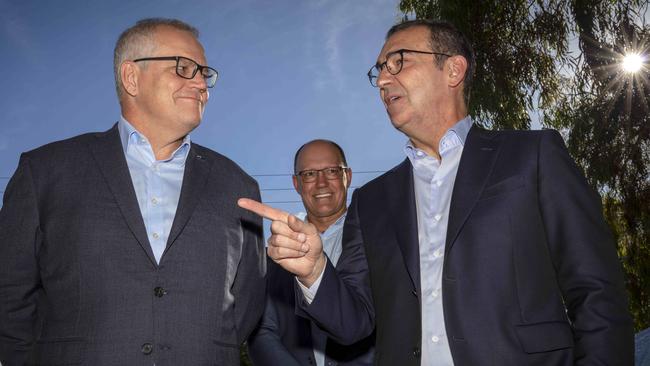
You can point to economic indicators, new investments, improved infrastructure, job opportunities, and even claim to have kept “people safe” during the pandemic, but it will not guarantee re-election. Political persuasion can never rely on gratitude and always requires an eye to the future.
Good political advocacy demonstrates core values and, most importantly, given it tends to be a two-horse race in this country, it demands differentiation. There needs to be a contest, a fight. with the other side. Politics is a cerebral contact sport.
Moderate Liberals like Marshall tend to do few things that Labor would not do; they concede ground on climate, education, even on social issues. So they end up running campaigns telling people that they are better managers than the other side – be still my beating heart.
If right-of-centre parties end up implementing the same policies Labor would adopt, they not only rob themselves of a persuasive case but leave themselves exposed, as Marshall has discovered, to the risk of a compelling Labor opponent. Those who scoff at so-called culture wars either lack core values or fail to understand the necessity to constantly live up to and defend them.
The SA contest has produced the usual daily announcements about projects and funding, but there is little in play that would make life different for voters. If Labor wins it will reinstate the V8 Supercar race that the Liberals scrapped, and abandon plans for a new entertainment centre in favour of more spending on health.
This is hardly a contest of ideas. This is not a culture war.
The Opposition Leader, Peter Malinauskas, turns out to be exactly the sort of Labor leader that Anthony Albanese is pretending to be. The former shop assistant’s union boss is a deeply committed Right faction warrior – since his teenage years he has been suspicious of the Socialist Left and worked to counter their influence.
He is a fit, articulate family man who understands and supports the ambition of working families and is at ease talking about business and working with businesspeople – many of whom quietly support his ascension. For his entire political career – and he was first spotted and nurtured by the “godfather” of the ALP Right, Senator Don Farrell, when he was still a teenager – he has been strongly identified with economically literate and aspirational ALP politics epitomised by Bob Hawke and Paul Keating.
Bottom line? He does not scare mainstream voters.
So, with so little of substance dividing the parties, Marshall’s only winning argument – that Labor would put the state’s revival at risk – just does not have the plausibility or urgency required.
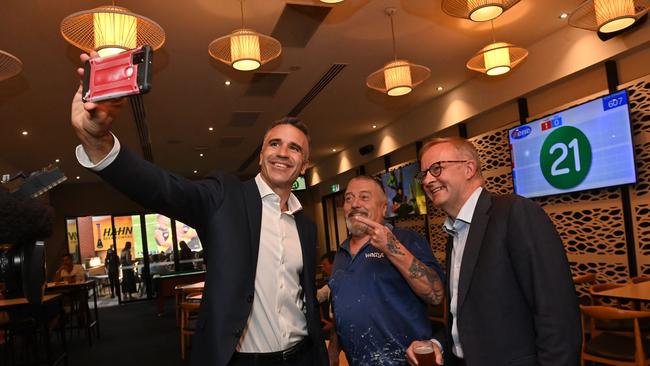
This explains whey Albanese wants to disown his Socialist Left past and liken himself to Hawke, Keating and even John Howard. And it also explains why Morrison has been so keen to expose this pretence, this week pointing out his opponent’s phony ideological makeover in an important attack line that, tellingly, was initiated by Howard himself.
We know Morrison is a gifted campaigner. Inexplicably he has allowed himself to be repeatedly forced onto the back foot in recent months, responding defensively to inane attacks that aim to fit him up for issues as remote from his authority as workplace sexual harassment and natural disasters.
Away from Canberra, speaking on his core issues, he still manages to cut through better than most. However, he lacks the policy differentiation that he expertly exploited in 2019.
There were two dominant spheres in that campaign where Morrison was able to demonstrate Coalition values and heighten the risk of Labor – climate change and economic management. Yet it is precisely in these two areas that the Coalition has blurred the lines with Labor.
By committing to net zero by 2050, the Coalition hoped to neutralise an issue on which it is constantly hammered by Labor and the Greens, the public broadcasters, the old Fairfax newspapers, and social media. Yet not only was this capitulation the wrong thing for our energy security, independence and affordability, it has also robbed itself of a central policy contrast with Labor and the Greens.
On economic management, the unprecedented spending and record debt triggered by the pandemic response has undermined at least two decades of Coalition focus on fiscal restraint. It is difficult to frame Labor as a risk on debt and deficit when you have chalked up record amounts of red ink yourself.
Big-spending initiatives now seem to have been licensed on either side of the aisle. What is a few billion dollars here or there when government debt tops a trillion dollars?
So, like Marshall, Morrison is now struggling for sharp points of difference. This is what happens when the moderate wing of the Liberal Party holds sway – it seeks to appease the media, compromise away the core arguments and protect the seats based in the wealthy suburbs of major cities, but it robs the Coalition of its rock-solid arguments and its raison d’etre.
For Marshall and Morrison, this has also alienated conservative MPs, causing a fracturing of the conservative vote among minor parties and independents. It is not sustainable in the long term.
Marshall also provides lessons on what not to do in pandemic leadership – or the abrogation of leadership. For most of the past two years he has hidden behind the human shields of his chief medical officer, Nicola Spurrier, and police commissioner, Grant Stevens, allowing them to dictate the rules and restrictions that have closed state borders for long period and even locked down the entire state on the back of a nutty pizza box transmission theory.
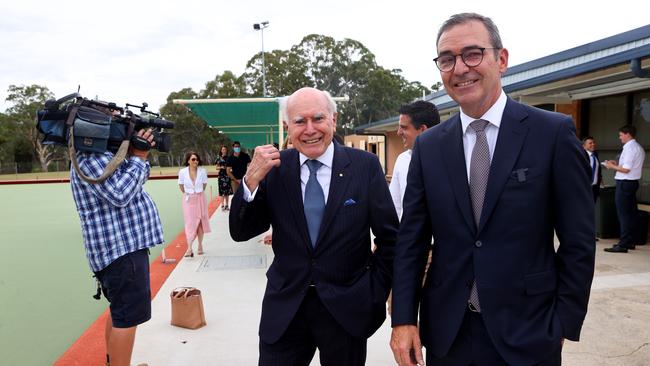
For large periods of time when the virus was kept out of SA, and certainly for the most frightened and paranoid citizens still, pandemic management was a strong suit for the state government. But Marshall was not the central figure – he stood behind these two prominent unelected officials.
This gave Malinauskas the cut-through line at this week’s Leader’s Forum on Sky News: “The only time that this government has looked any good was when other people were in charge of it – Grant Stevens and Nicola Spurrier.”
There is a parallel here with Morrison, whose national cabinet seemed like a good idea at the start of the pandemic but quickly morphed into an awkward arrangement that cast him as a spectator while the premiers implemented the responses they wanted. This was largely unjust because the most important pandemic measures, the closure and quarantining of international borders and the creation of JobKeeper, were federal decisions.
The risk of appearing impotent on Covid leadership played out again this week when Morrison was campaigning in Perth and refused to criticise Mark McGowan’s pandemic response. This virus has thrown up difficult policy and political challenges, there is no doubt about that, but it is confusing for a Liberal Prime Minister to endorse the paranoia of McGowan and the heavy-handed incompetence of Daniel Andrews, while also lauding the push-ahead pragmatism of Dominic Perrottet – not all of these strategies can be correct.
Morrison needs to outline a firm position on the pandemic and push it relentlessly until election day. He cannot be all things to all people.
He does have one real point of differentiation that is both crucial for the nation and opportune for his re-election campaign – national security. With the China threat and Ukraine war adding to the pre-existing security problems of Islamist terrorism and border security, Morrison can and must draw a sharp contrast with Labor. Especially given Albanese represents the Socialist Left which is naturally sceptical about the US alliance, weak on border security, and dewy-eyed about dealing with the Beijing communists.
With differentiation surrendered in so many other areas, and Labor wobbly on China and defence spending, national security is emerging as the crucial topic for the federal election in May. Morrison should draw Albanese into a debate but even without that, the inherent risks make for a plausible attack on Labor.
Education is another opportunity. Before he was sidelined by ABC revelations about a consensual affair, Alan Tudge was leading the charge for revamping the national curriculum so that it teaches important national values and positive Australian history. The Coalition seems to have dropped this discussion.
Morrison needs what Marshall has not conjured – a fight with Labor over issues that matter. If he had stayed strong on energy, eschewing net zero, he would already look wise as the world grapples with the bleak consequences of energy insecurity.
In a zero-emissions world, moving ahead on nuclear energy is vital and inevitable. It is an issue of national and economic security whose time has come and which Labor will not be able to handle.



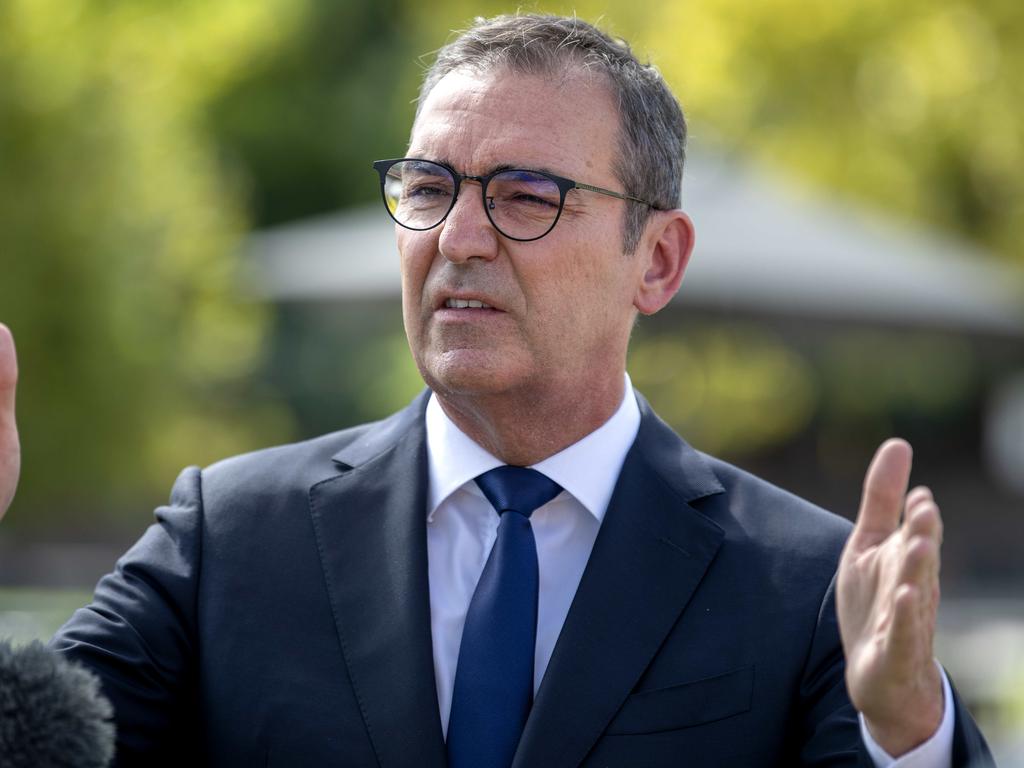
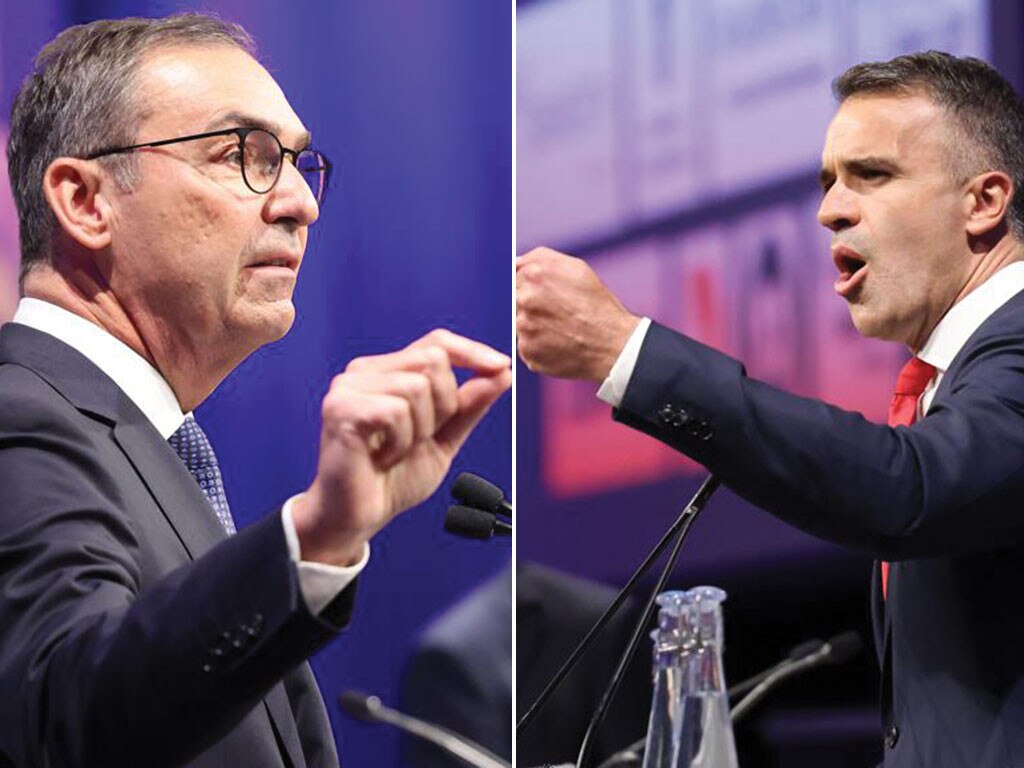


Most observers and all the opinion polls tell us there is a better than even chance that in South Australia on Saturday night a reasonably competent government overseeing a recovering economy and revitalised capital city will be turfed from office. That should worry Scott Morrison, and he needs to learn some lessons from the perilous position of Steven Marshall’s Liberal government.